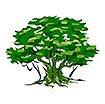Physical Education
Curriculum Intent
At Reydon, we aim to provide a PE curriculum that pupils from Reception to Year 6 not only enjoy but also allows them to experience a range of activities that help them to develop their health, fitness and wellbeing. We intend to offer a high-quality physical education curriculum that inspires all pupils to succeed and excel in competitive sport and other physically-demanding activities. It provides opportunities for pupils to become physically confident in a way which supports their health and fitness. Opportunities to compete in sport and other activities build character and help to embed values such as fairness and respect.
The national curriculum for PE aims to ensure that all pupils:
- develop competence to excel in a broad range of physical activities
- are physically active for sustained periods of time
- engage in competitive sports and activities
- lead healthy, active lives
Curriculum Implementation
Children are taught regularly by both teaching staff and a sports instructor from Reception to Year 6. The curriculum is further enhanced by participation in numerous sporting tournaments with other schools in the area and after school clubs. A play leader supervises sports activities at lunchtime, including: football, hockey, basketball and netball.
Recently, some of our Year 4 and 5 pupils have successfully qualified to be Active Leaders, whereby they offer a range of sporting activities for children to participate in at lunchtime.
As an Active School, we aim to ensure that the children participate in active lessons outside of their regular PE lessons. This involves incorporating moments within lessons whereby the children can be active.
We follow the guidelines set by the national curriculum to ensure we offer a range of PE activities that allow each child to feel challenged and offer opportunities to progress further.
EYFS
As part of the EYFS statutory framework pupils are taught:
Physical development - involves providing opportunities for young children to be active and interactive; and to develop their co-ordination, control, and movement. Children must also be helped to understand the importance of physical activity, and to make healthy choices in relation to food.
Moving and handling: children show good control and co-ordination in large and small movements. They move confidently in a range of ways, safely negotiating space. They handle equipment and tools effectively.
Health and self-care: children know the importance for good health of physical exercise, and a healthy diet, and talk about ways to keep healthy and safe.
Key stage 1
Pupils develop fundamental movement skills, become increasingly competent and confident and access a broad range of opportunities to extend their agility, balance and coordination, individually and with others. They are able to engage in competitive (both against self and against others) and co-operative physical activities, in a range of increasingly challenging situations. Pupils are taught to:
- master basic movements including running, jumping, throwing and catching, as well as developing balance, agility and co-ordination, and begin to apply these in a range of activities
- participate in team games, developing simple tactics for attacking and defending
- perform dances using simple movement patterns.
Key stage 2
Pupils continue to apply and develop a broader range of skills, learning how to use them in different ways and to link them to make actions and sequences of movement. They enjoy communicating, collaborating and competing with each other. They develop an understanding of how to improve in different physical activities and sports and learn how to evaluate and recognise their own success.
Pupils are taught to:
- use running, jumping, throwing and catching in isolation and in combination
- play competitive games, modified where appropriate [for example, badminton, basketball, cricket, football, hockey, netball, rounders and tennis], and apply basic principles suitable for attacking and defending
- develop flexibility, strength, technique, control and balance [for example, through athletics and gymnastics]
- perform dances using a range of movement patterns
- take part in outdoor and adventurous activity challenges both individually and within a team
- compare their performances with previous ones and demonstrate improvement to achieve their personal best.
Swimming
Each year group in Key Stage 2 will attend swimming lessons for one term, usually in Year 4.
Curriculum Impact
By the end of each key stage, pupils are expected to know, apply and understand the matters, skills and processes specified in the relevant programme of study. At Reydon we use summative assessment to determine children’s understanding and inform teachers planning. Each part of the PE curriculum is reviewed on a termly basis by the subject leader.
Our new Year 4 and 5 Sports Leaders have completed their training with the Year 6 Sports Ambassadors and are already running a range of games and activities at lunchtimes



Last year 98% of children had the opportunity to compete in Active Learning Trust and North Suffolk Sports Partnership events and we have started strongly again this year!




